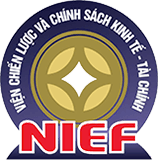VietNam 2035: Toward Prosperity, Creativity, Equity, and Democracy (Overview)
05/07/2017 11:28
After 30 years of economic reforms since the launch of "Đổi Mới” in 1986, Vietnam has recorded significant and historic achievements. From a poor, war-ravaged, centrally planned economy, which was closed off from much of the outside world, Vietnam has become a middle-income country with a dynamic market economy that is deeply integrated into the global economy. Vietnam’s economic growth has not only been rapid, but also stable and inclusive, translating into strong welfare gains for the vast majority of the population. This is an impressive record of success-one that the Vietnamese people take justifiable pride in, while appreciating the support of the international community.
But 30 years of success from reforms raises expectations for the future. The country's ambitions are aptly captured in the Vietnamese constitution, which sets the goal of "a prosperous people and a strong, democratic, equitable, and civilized country.” There is a firm aspiration that by 2035, Vietnam will be a modern and industrialized nation moving toward becoming a prosperous, creative, equitable, and democratic society.
Motivated by these aspirations, in July 2014, the Government of Vietnam and the World Bank Group jointly initiated the Vietnam 2035 report.
The report recognizes six key transformations that will help Vietnam achieve its goals for 2035: (1) to enable economic modernization with a competitive private sector firmly in the lead; (2) to improve the country's technological and innovative capacity; (3) to reshape urban policies and investments for more dynamic cities and urban centers; (4) to chart an environmentally sustainable development path with increasing adaptation and resilience to changing climate patterns; (5) to promote equality and inclusion among marginalized groups for the development of a harmonious middle-class society; and (6) to establish a modern rule of law state and a democratic society.
Vietnam 2035 structures these transformations and the reform agenda around three key pillars: balancing economic prosperity with environmental sustainability; promoting equity and social inclusion; and enhancing the capacity and accountability of the state.
We are delighted by the close partnership between the experts of Vietnam and the World Bank Group, and other international scholars that has characterized the preparation of the report, Vietnam 2035: Toward Prosperity, Creativity, Equity, and Democracy. We hope that the Government of Vietnam, the World Bank Group, and other development partners will continue the effective collaboration in incorporating the report's relevant recommendations in the Socio-Economic


